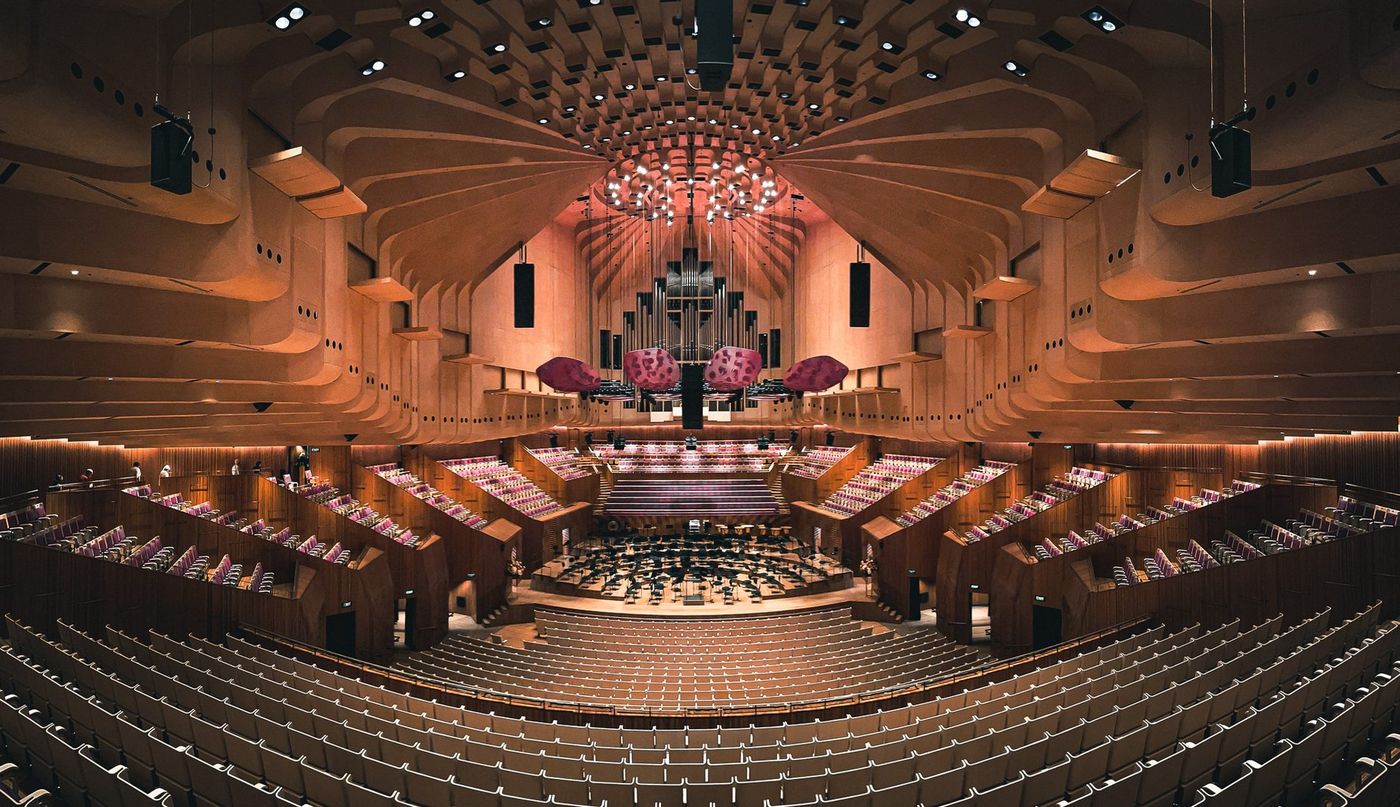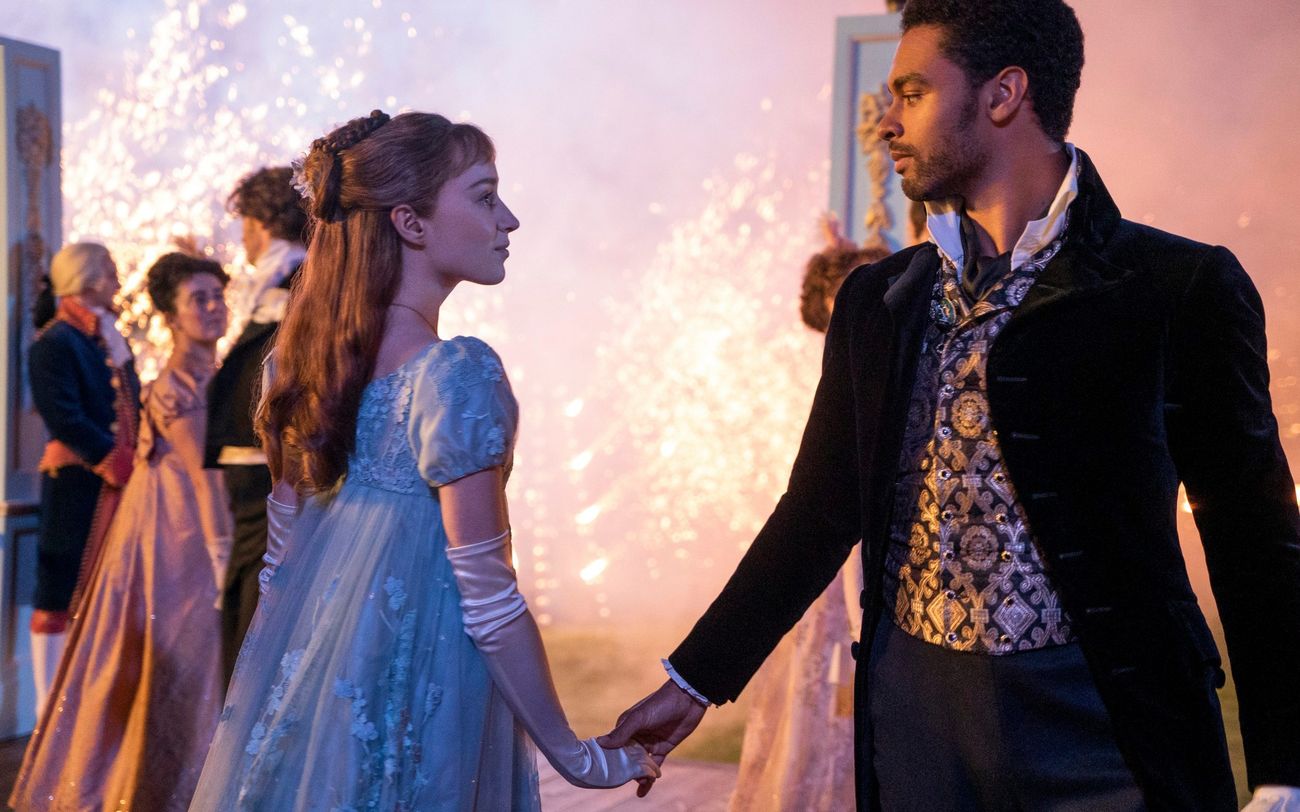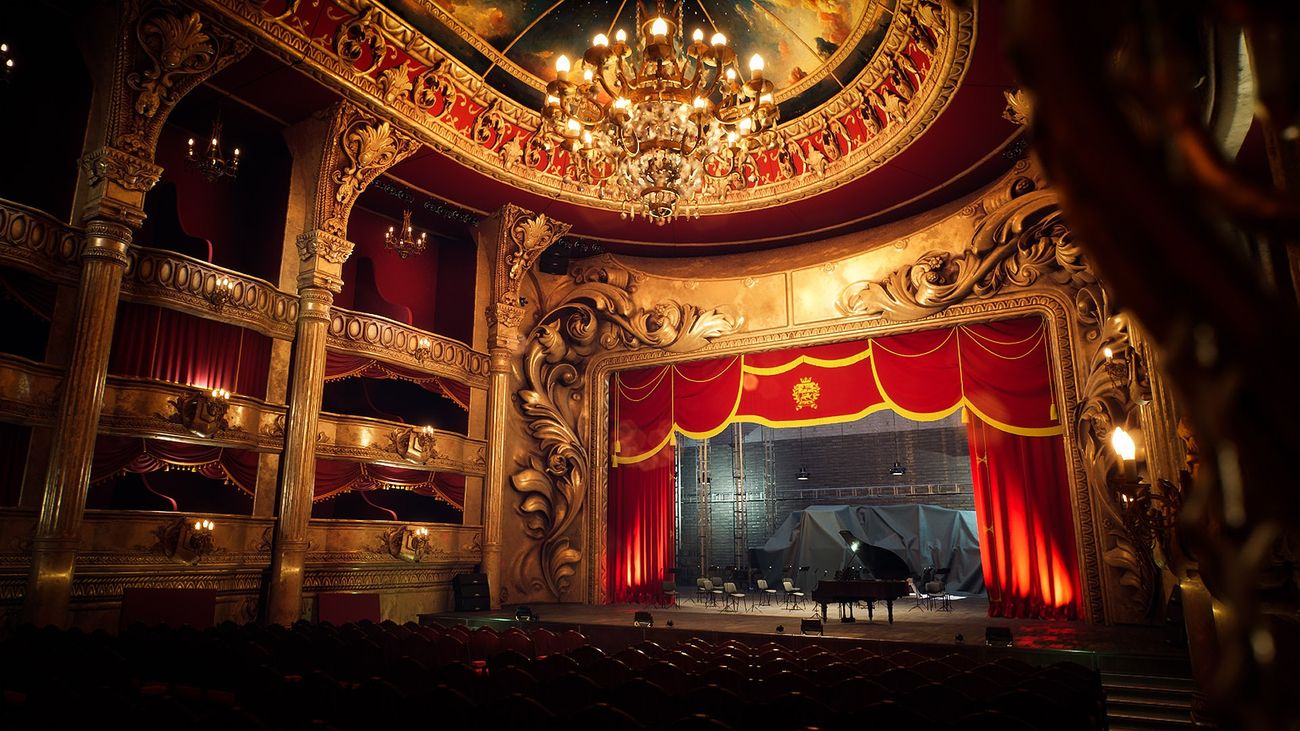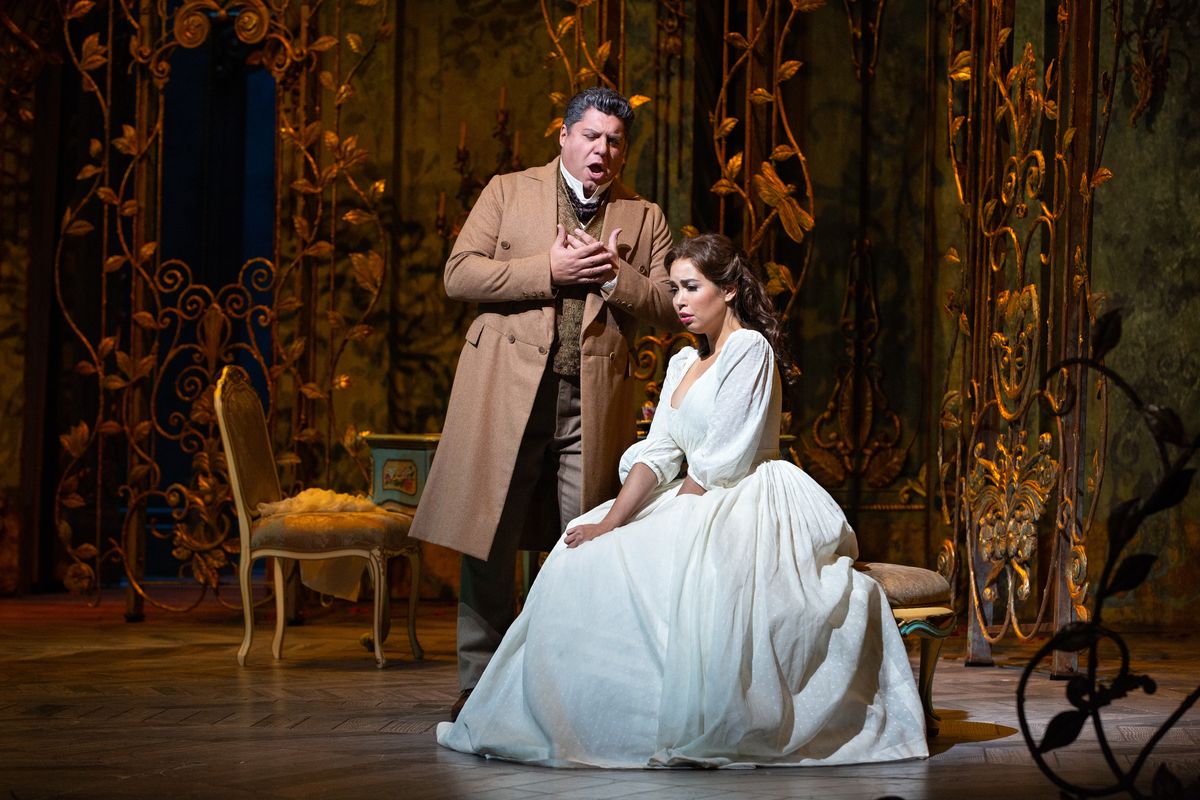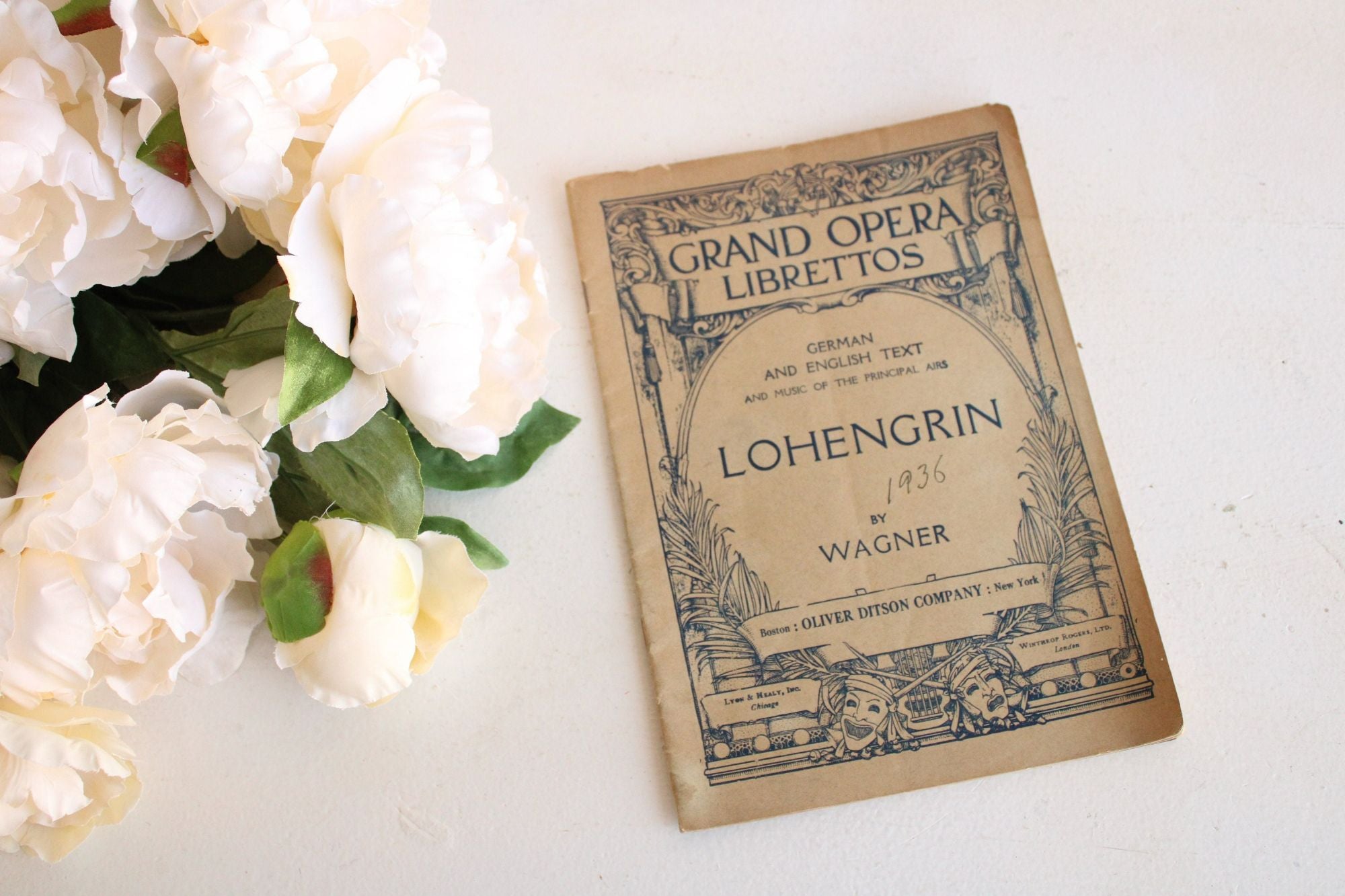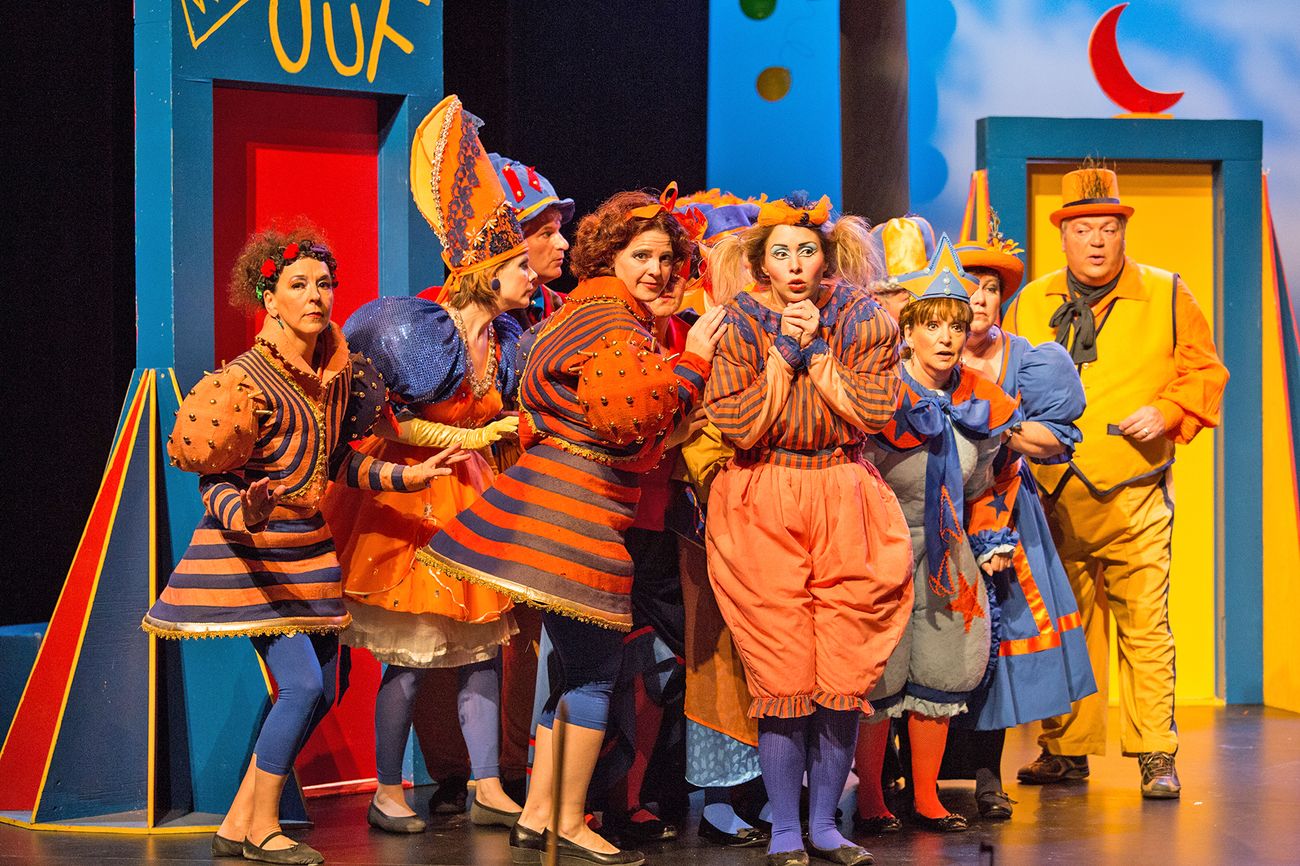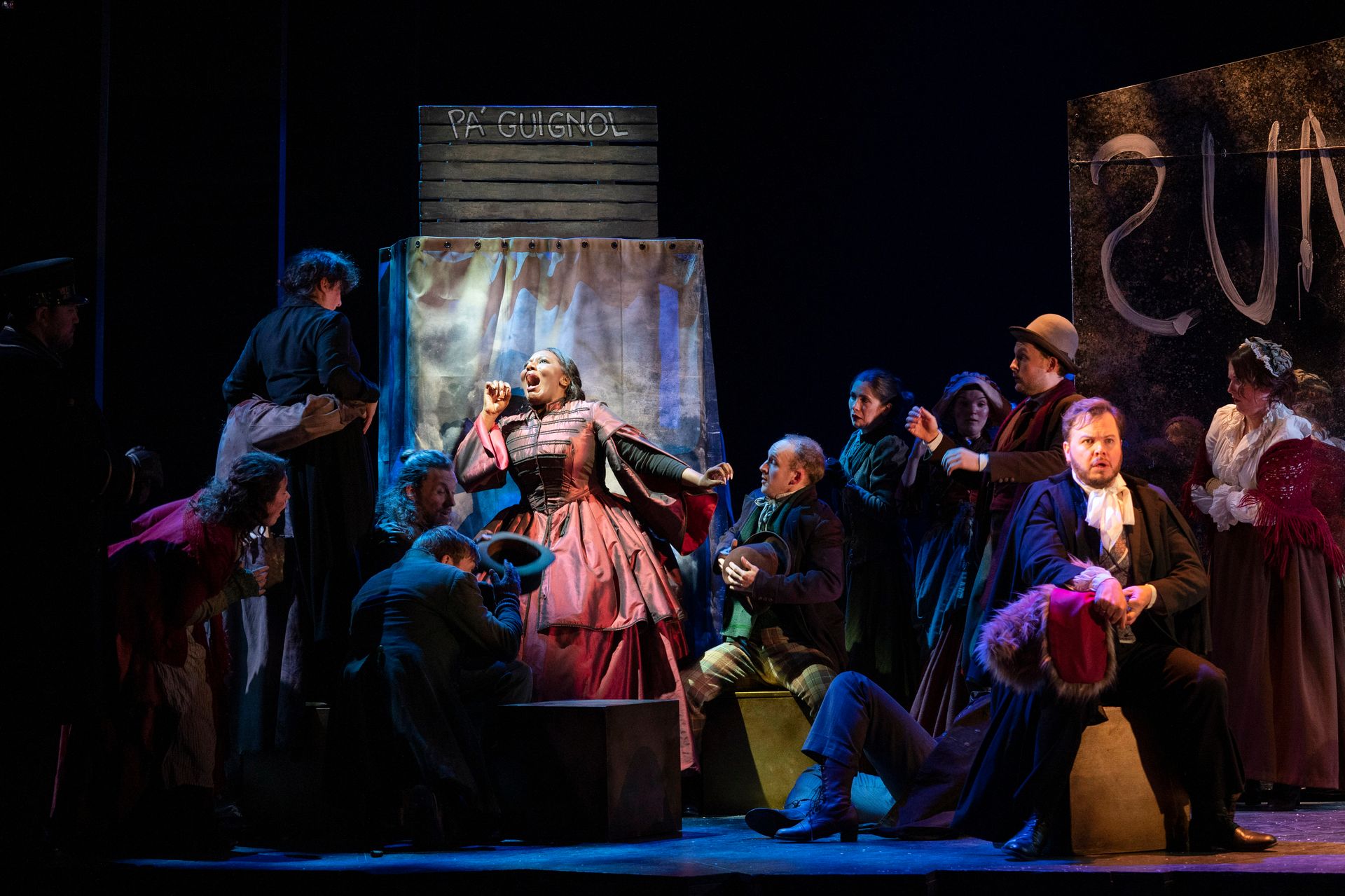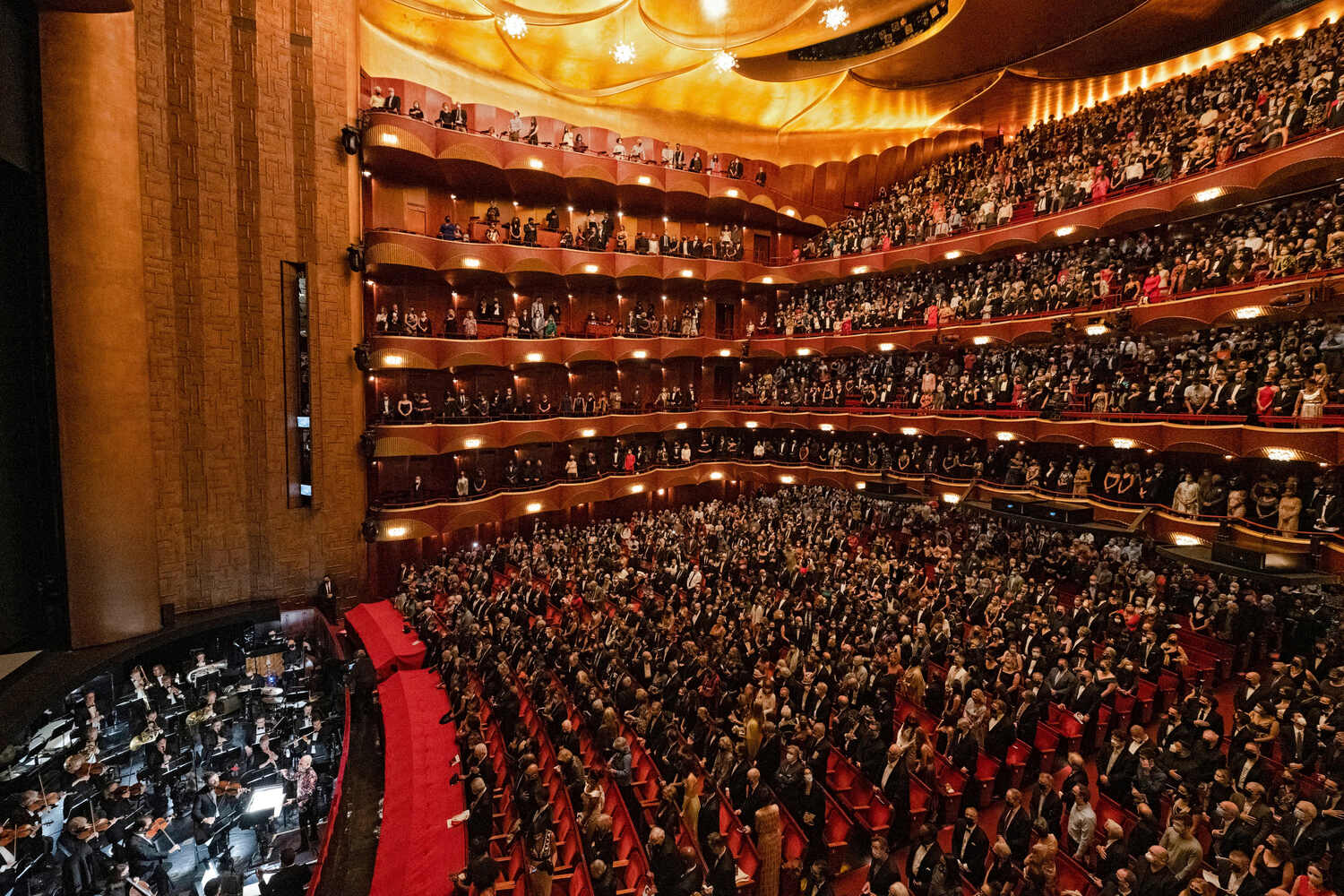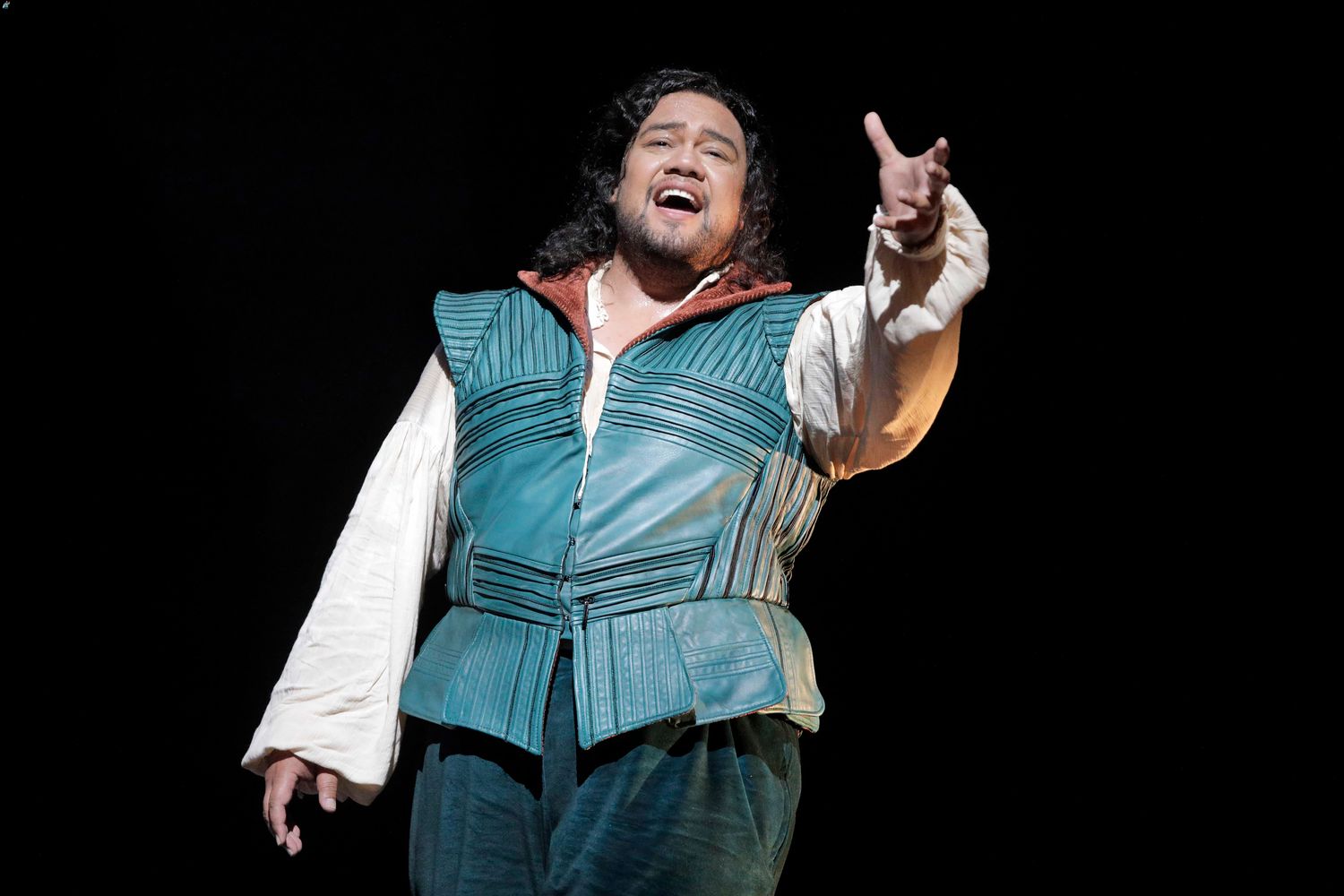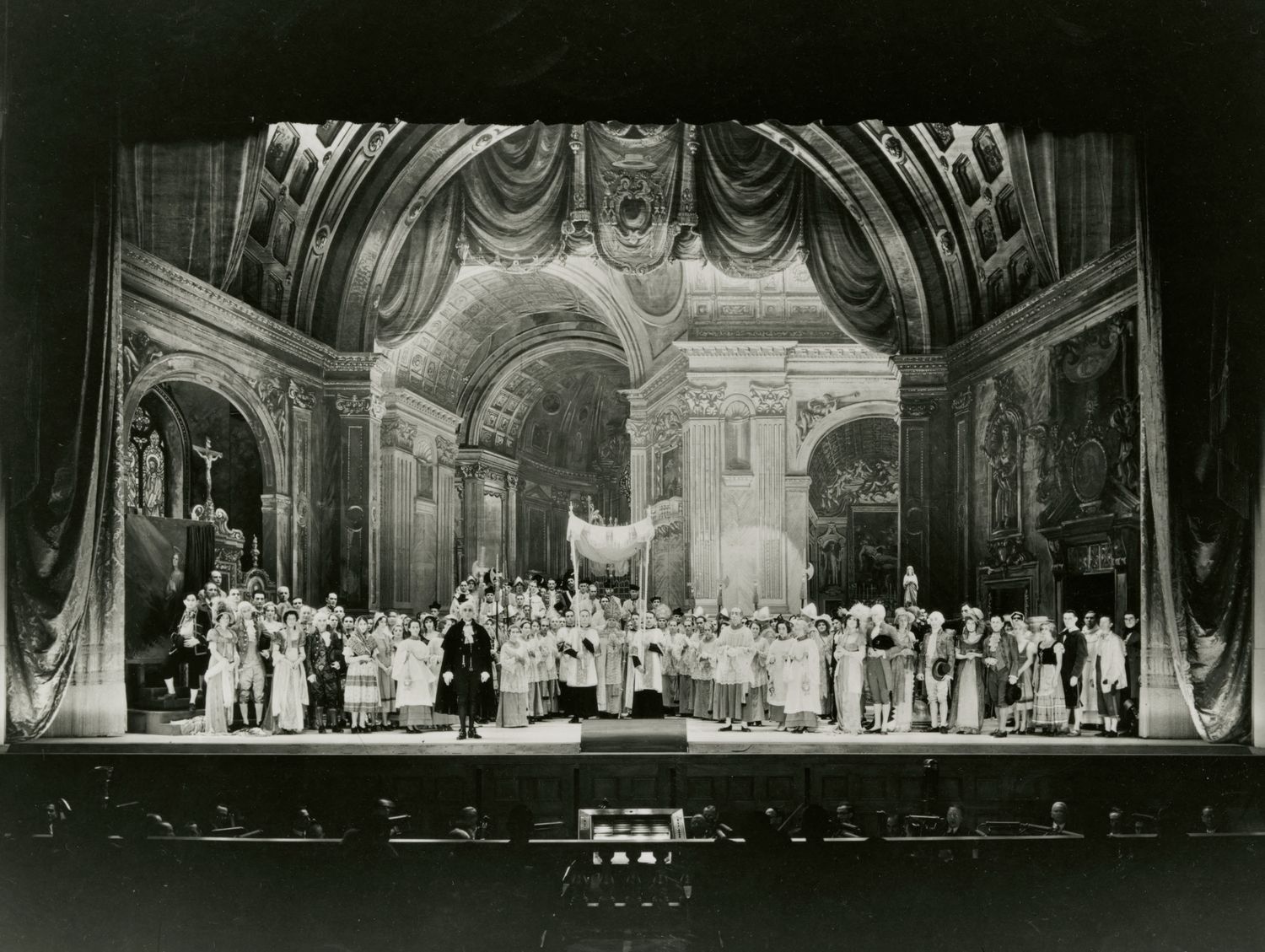Home>Events & Info>Opera>Why Is Opera In Italian
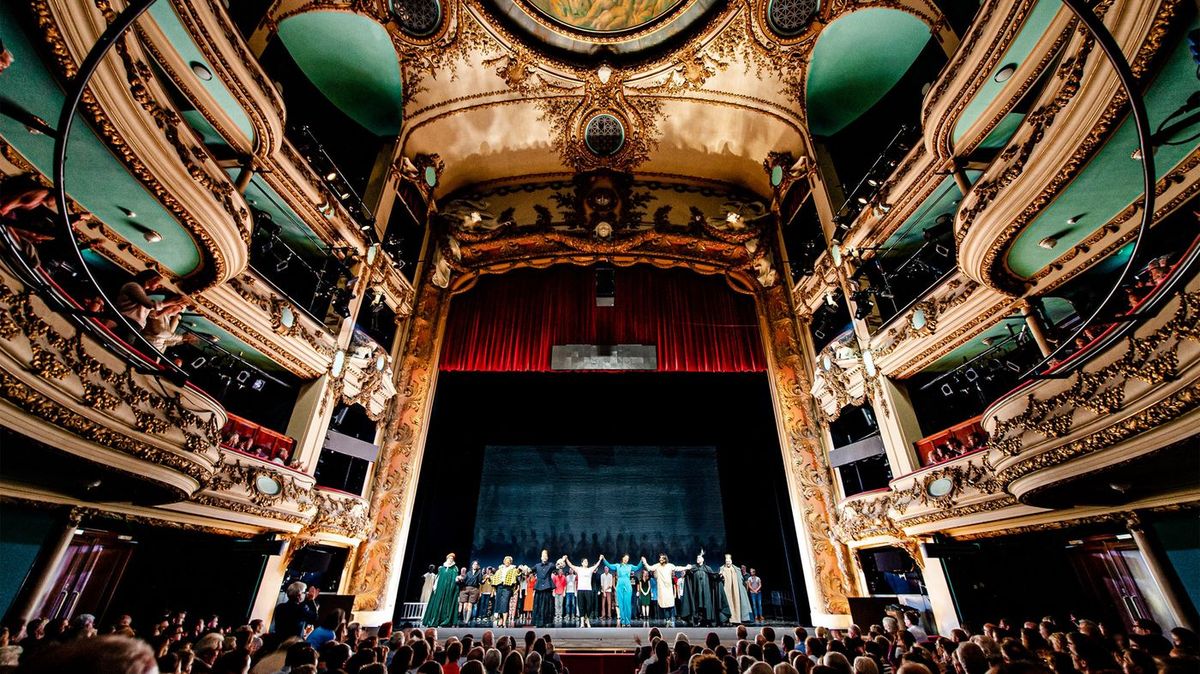

Opera
Why Is Opera In Italian
Modified: January 22, 2024
Discover why opera is traditionally performed in Italian and the significance behind this language choice. Explore the history and impact of Italian opera.
(Many of the links in this article redirect to a specific reviewed product. Your purchase of these products through affiliate links helps to generate commission for AudioLover.com, at no extra cost. Learn more)
Table of Contents
- Introduction
- Historical Background of Italian Opera
- Influence of Italian Language and Culture
- Vocal Characteristics of the Italian Language
- Relationship Between Opera and Italian Identity
- Differences Between Italian and Other Operatic Languages
- International Popularity and Prestige of Italian Opera
- Conclusion
Introduction
Opera, the grandiose art form that combines music, drama, and visual spectacle, has captivated audiences for centuries. It has the power to transport us to different eras and immerse us in the emotions and stories of its characters. While opera is performed in various languages around the world, there is one language that reigns supreme – Italian.
Italian opera is widely regarded as the pinnacle of this art form, with a rich history dating back to the late 16th century. The works of renowned composers such as Verdi, Puccini, and Rossini have become synonymous with Italian opera, and their masterpieces continue to be performed on opera stages worldwide. But why is opera traditionally performed in Italian?
In this article, we will delve into the historical background, cultural influence, vocal characteristics of the Italian language, and the deep-rooted relationship between opera and Italian identity. We will also explore the differences between Italian and other operatic languages, as well as the international popularity and prestige of Italian opera.
So sit back, imagine the lush velvet curtains parting, and let’s explore why opera and Italian have become inseparable artistic partners.
Historical Background of Italian Opera
The origins of Italian opera can be traced back to the late 16th century, during the Renaissance period. It emerged in Florence, Italy, as an artistic movement that aimed to revive the dramatic arts of ancient Greece and Rome. One of the first notable opera works is “Dafne” by Jacopo Peri, performed in 1598. This marked the beginning of a new art form that would soon captivate audiences across Europe.
Italian opera quickly spread throughout the Italian Peninsula, with composers and librettists experimenting with different styles and themes. The early Italian operas were often based on mythology, exploring themes of love, tragedy, and the supernatural. These works were performed in the vernacular Italian language, which allowed them to connect more intimately with audiences compared to the Latin-based operas popular at the time.
During the Baroque era in the 17th century, opera flourished in Italy, particularly in cities like Venice and Naples. Composers such as Claudio Monteverdi and Alessandro Scarlatti pushed the boundaries of opera, incorporating intricate orchestration, elaborate vocal techniques, and complex musical structures.
Italian opera truly reached its golden age in the 18th and 19th centuries. This period, known as the bel canto era, witnessed the rise of iconic composers such as Giuseppe Verdi, Gioachino Rossini, and Gaetano Donizetti. Their works showcased the beauty of the Italian language and revolutionized the art form, with emotionally charged melodies, intricate vocal ornamentation, and powerful dramatic storytelling.
Furthermore, Italian opera became a significant part of the aristocratic culture in Italy during this time. Noble families would patronize opera houses, commission new works, and attend performances as a social and cultural event. The popularity of Italian opera spread beyond Italy, with performances taking place in prestigious venues throughout Europe.
Today, Italian opera continues to thrive, with both classic and modern works being performed in renowned opera houses worldwide. Its historical background serves as a testament to the enduring legacy and influence of Italian culture on the art form.
Influence of Italian Language and Culture
The Italian language and culture have had a profound influence on the development and character of opera. The unique qualities of the Italian language, the expressive nature of the Italian people, and the historical context all contribute to its prominence in the opera world.
One of the key factors is the melodic nature of the Italian language. Italian is known for its musicality, with its vowels and open syllables lending themselves naturally to singing. The smooth and flowing vocal quality of the language allows opera singers to convey emotions and melodies with great ease and expressiveness. It is no surprise that many of the most famous arias and vocal performances in opera are written in Italian.
The Italian language also possesses a rich and poetic tradition, making it well-suited for the lyrical nature of opera. The words and phrases in Italian have a captivating rhythm and sound, enhancing the power of the music and adding to the emotional impact of the performance. The beauty of the Italian language adds an additional layer of depth and allure to the art form.
Italian culture, with its emphasis on passion, emotion, and storytelling, is another significant influence on opera. Italian operas often revolve around themes of love, betrayal, tragedy, and triumph. The expressive nature of Italian culture allows opera singers to delve deep into these emotions, creating compelling and riveting performances.
In addition, Italian operatic traditions have shaped the structure and conventions of the art form. The aria, a solo song that reveals a character’s emotions and motivations, is an integral part of Italian opera. The use of recitative, a style of sung dialogue, allows for seamless transitions between spoken dialogue and musical passages. These elements contribute to the dramatic impact and narrative flow of the opera.
Italian culture’s influence is not limited to the linguistic and musical aspects of opera. It extends to the visual and theatrical elements as well. Italian opera is renowned for its elaborate costumes, captivating set designs, and grand staging. These visual spectacles enhance the overall experience and immerse the audience in the world of the opera.
The influence of the Italian language and culture on opera is undeniable. Together, they have shaped the very essence and soul of this art form, making Italian opera an iconic and globally cherished tradition.
Vocal Characteristics of the Italian Language
The Italian language possesses unique vocal characteristics that make it particularly well-suited for operatic performances. These characteristics, ranging from the phonetics to the natural rhythm, contribute to the beauty and expressiveness of Italian opera.
One of the distinctive features of the Italian language is its smooth and flowing vowels. Italian vowels are pronounced with clarity and purity, allowing singers to sustain long, melodic lines effortlessly. The open and rounded vowel sounds add warmth and resonance to the voice, creating a rich and vibrant vocal quality that is highly desirable in opera.
In addition to the vowels, Italian also has a wide range of consonantal sounds, allowing for intricate vocal ornamentation. Consonants like “r” and “l” are pronounced with a soft and lyrical quality, providing a gentle and seamless transition between notes. This fluidity in pronunciation enables singers to execute melismatic passages and trills with precision and grace.
Moreover, the Italian language has a natural musicality due to its syllabic structure. Each syllable is given equal emphasis, making it easier for singers to articulate the text and maintain a rhythmic flow. This inherent musicality enables singers to convey emotions and phrasing with authenticity and clarity, resulting in a captivating and engaging performance.
The expressiveness of the Italian language allows for subtle variations in tone and dynamics. Singers can effortlessly express different emotions through changes in vocal intensity and timbre. The flexibility of Italian phonetics provides singers with a wide range of vocal colors and nuances, enhancing the depth and interpretation of the music.
Furthermore, the poetic nature of the Italian language influences the lyrical quality of Italian opera. The carefully crafted librettos, filled with vivid imagery and expressive language, add depth and meaning to the music. Italian operatic texts often contain words that evoke powerful emotions, adding to the overall dramatic impact of the performance.
Ultimately, the vocal characteristics of the Italian language, with its smooth vowels, lyrical consonants, rhythmic structure, and expressive quality, create the ideal foundation for operatic singing. It allows singers to fully immerse themselves in the music, bringing to life the characters and stories of Italian opera with exceptional artistry and emotional resonance.
Relationship Between Opera and Italian Identity
Opera holds a significant place in Italian identity, as it is deeply intertwined with the country’s cultural, historical, and artistic heritage. Over the centuries, opera has served as a vibrant reflection of Italian society, capturing its values, aspirations, and collective spirit.
Italian opera has played a pivotal role in shaping Italy’s national identity. It symbolizes the nation’s rich artistic legacy and cultural achievements. The works of Italian composers, such as Verdi, Puccini, and Rossini, are regarded as national treasures and are celebrated as icons of Italian culture. These operatic masterpieces have become part of the collective memory and pride of the Italian people.
Opera also serves as a platform for exploring and questioning societal norms and values. Italian opera often tackles themes of love, honor, justice, and political intrigue. It reflects the passionate and turbulent nature of Italian society, with its intricate relationships, complexities, and struggles. Through opera, Italians have expressed their hopes, dreams, and concerns, constantly redefining and reaffirming their national identity.
Furthermore, opera has served as a significant source of inspiration for Italian artists and intellectuals. It has influenced other art forms, such as literature, painting, and film, and has contributed to the development of Italian culture as a whole. Italian opera has inspired generations of musicians, writers, and performers, both within Italy and around the world.
Opera has also played a key role in the historical and political context of Italy. During the 19th century, Italian opera became a powerful symbol of the country’s struggle for independence and unification. Composers like Verdi infused their works with themes of patriotism and liberation, providing a voice for the Italian people striving for a unified nation.
The emotional impact and grandeur of Italian opera also reflect the larger-than-life nature of Italian culture. Italians have a reputation for their passion, expressiveness, and zest for life, all of which are embodied in the dramatic and operatic performances. The extravagant costumes, dramatic staging, and intense emotions of Italian opera mirror the flamboyant and vibrant Italian spirit.
Overall, the relationship between opera and Italian identity is profound and enduring. Opera serves as a cultural treasure, a vehicle for storytelling, and a form of emotional expression. It encapsulates the essence of Italian culture and the values that define the Italian people, further solidifying its place as a cornerstone of national identity.
Differences Between Italian and Other Operatic Languages
While Italian is the dominant language of opera, it is not the only language in which this art form is performed. Opera has been adapted and performed in various languages, each bringing its own unique characteristics and flavor to the genre. Here are some of the key differences between Italian and other operatic languages:
French: French opera has its distinct style and vocal characteristics. The French language has a different phonetic structure compared to Italian, resulting in different vocal placements and timbres. French operas often prioritize clarity of diction and precision in articulation. The French repertoire is known for its elegance, lyricism, and refined musical and dramatic sensibilities.
German: German opera is known for its complexity and depth. The German language allows for rich and resonant vocal textures, with its guttural and consonant-heavy sounds. German opera emphasizes the fusion of music and drama, with a focus on intense storytelling and emotional depth. The repertoire ranges from the majestic works of Wagner to the intricate compositions of Mozart and Strauss.
Russian: Russian opera is characterized by its powerful and emotionally driven music. The Russian language has a melodic and expressive quality that adds to the dramatic impact of the performances. Russian operas often explore themes of Russian history, folklore, and national identity. The repertoire includes masterpieces by composers such as Tchaikovsky, Mussorgsky, and Rimsky-Korsakov.
English: English language opera has a diverse range of styles and forms. English opera utilizes the natural rhythm and prosody of the language, resulting in music that is often more syllabic and speech-like. English operas cover a wide spectrum of genres, from the baroque works of Handel to the contemporary pieces of Britten and Adams.
These differences in language and vocal characteristics contribute to the distinct flavor and artistic expression of each operatic tradition. Each language brings its own nuances to the music and affects the way singers interpret and convey the emotions and storytelling of the opera. Despite these differences, opera remains a universal art form, capable of transcending language barriers and captivating audiences around the world.
International Popularity and Prestige of Italian Opera
Italian opera has achieved remarkable international popularity and prestige, firmly establishing itself as the epitome of the operatic art form. Its enduring appeal can be attributed to several factors:
Historical Legacy: Italian opera boasts a rich historical legacy. It encompasses the works of renowned composers like Verdi, Puccini, and Rossini, who have left an indelible mark on the genre. These compositions continue to be performed and revered worldwide, showcasing the enduring power of Italian opera.
Musical Brilliance: Italian opera is celebrated for its exquisite music, characterized by lush melodies, emotional depth, and stirring climaxes. The carefully constructed harmonies, intricate orchestration, and memorable arias have captivated audiences for centuries. The exceptional craftsmanship of Italian composers has created a repertoire that remains unparalleled in its beauty and complexity.
Expressive Vocal Traditions: Italian opera places great emphasis on the art of singing. The vocal techniques and traditions developed in Italy, such as bel canto, have influenced singers and vocal pedagogy across the globe. The demanding vocal requirements of Italian opera, with its dramatic and virtuosic passages, have produced some of the world’s finest opera singers.
Theater and Visual Spectacle: Italian opera is renowned for its grandeur and visual spectacle. The elaborate sets, opulent costumes, and dramatic staging elevate the storytelling and immerse the audience in a captivating world. The combination of music, drama, and visual elements creates a multisensory experience that is rich in artistic expression.
Broad Cultural Influence: Italian culture, with its literary, historical, and artistic traditions, permeates Italian opera. The stories and themes explored in Italian opera often resonate with universal human experiences, transcending cultural boundaries. This universality of themes, coupled with the emotional depth and relatability, contributes to the global appeal of Italian opera.
International Opera Houses and Festivals: Italian opera has established a strong presence in opera houses and festivals worldwide. Opera houses in cities such as Milan, Rome, and Verona continue to draw opera enthusiasts from around the globe. Additionally, international opera festivals like the Arena di Verona Festival and the Verdi Festival in Parma showcase Italian opera to a diverse and international audience.
The international popularity and prestige of Italian opera have ensured its enduring legacy and relevance. Its significant impact on the global operatic landscape continues to inspire and captivate audiences, making Italian opera a cherished cultural treasure that transcends borders and generations.
Conclusion
Italian opera, with its rich historical background, vocal characteristics, and cultural significance, holds a special place in the world of music and performing arts. The symbiotic relationship between opera and the Italian language and culture has led to the dominance and global recognition of Italian opera as the epitome of this art form.
The historical legacy and brilliance of Italian composers have produced timeless masterpieces that continue to enthrall audiences worldwide. The expressive nature of the Italian language and the vocal traditions developed within Italy have shaped the very essence of operatic singing. The melodic quality, rhythmic structure, and emotional depth of the Italian language have infused Italian opera with a unique character and allure.
Italian opera also holds a significant role in shaping Italian identity, reflecting the values, aspirations, and collective spirit of the Italian people. It is a cultural treasure that has inspired generations of artists, intellectuals, and performers. The grandeur and visual spectacle of Italian opera, combined with its powerful storytelling and passionate performances, continue to captivate audiences and build bridges across diverse cultures.
While other languages have their own operatic traditions and characteristics, Italian opera stands out for its international popularity and prestige. The enduring appeal of Italian opera rests on its historical legacy, musical brilliance, expressive vocals, and broad cultural influence. Opera houses and festivals around the world continue to celebrate and showcase Italian opera, ensuring its enduring legacy and relevance.
In conclusion, Italian opera has secured its place as the pinnacle of this art form, captivating audiences with its captivating storytelling, intricate music, and unparalleled vocal performances. Its influence extends far beyond the stage, enriching the global cultural landscape. Italian opera remains a true testament to the power of music, language, and art, forging connections between people and transcending barriers of time and place.

